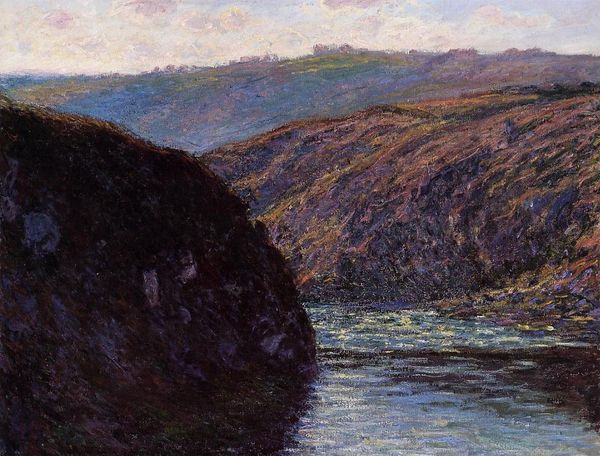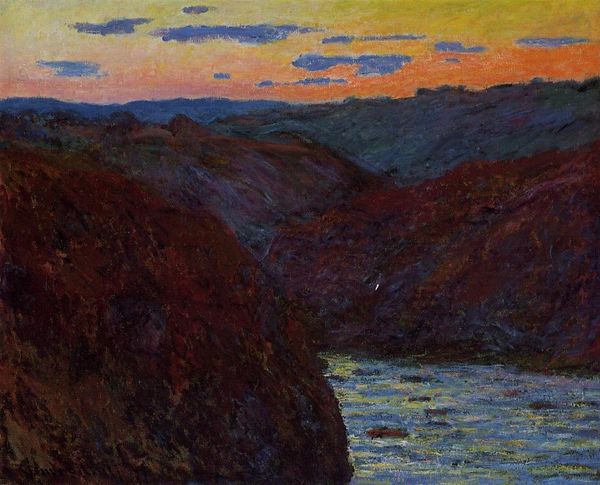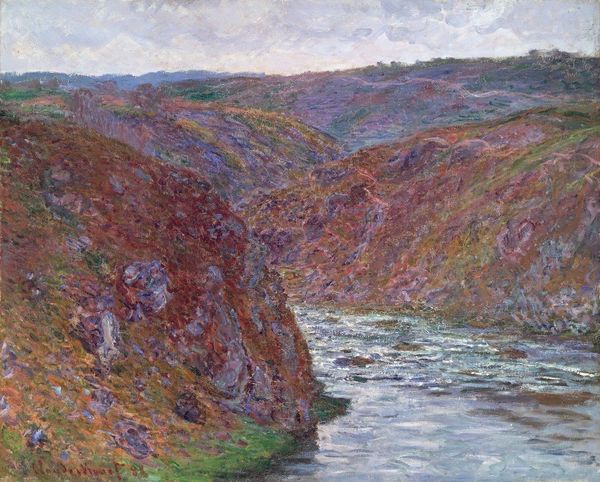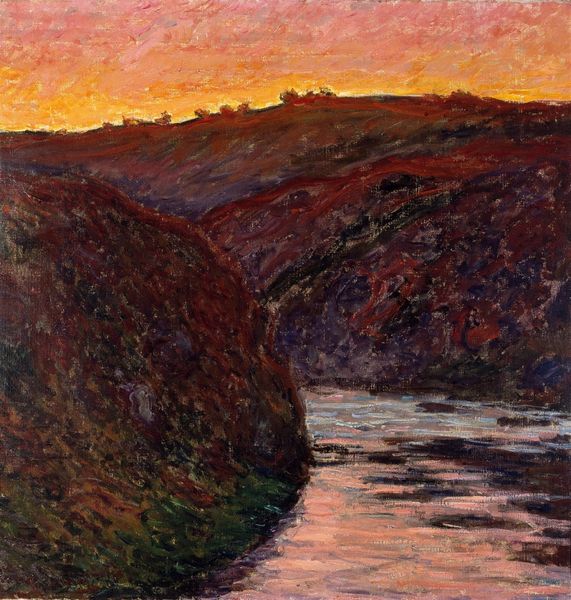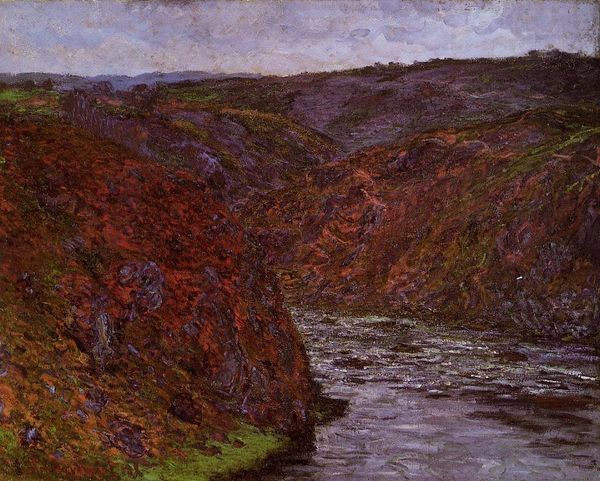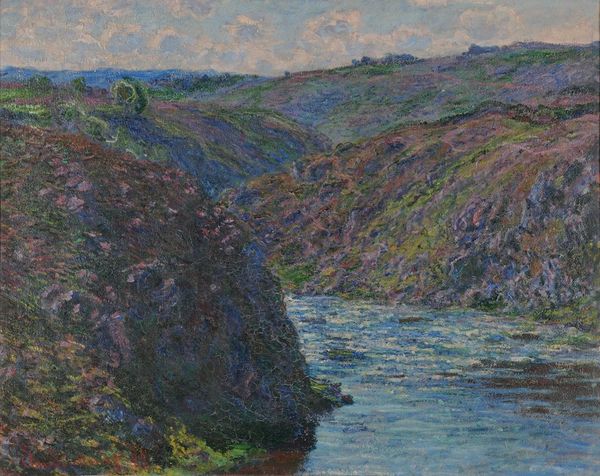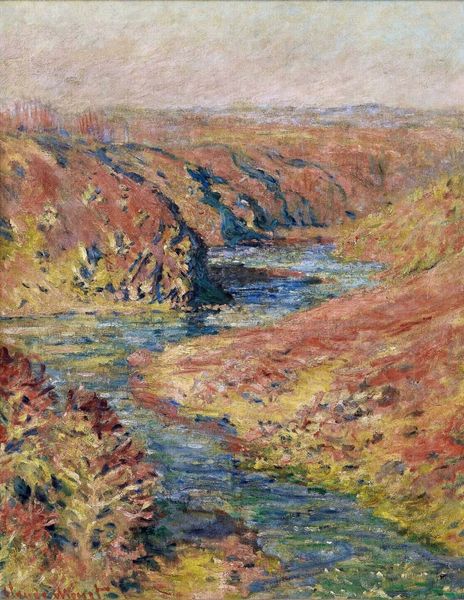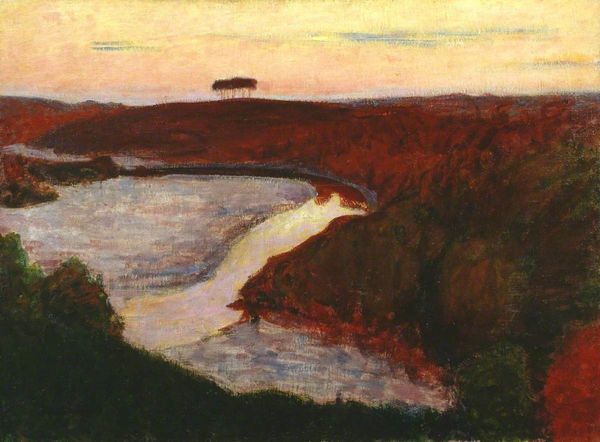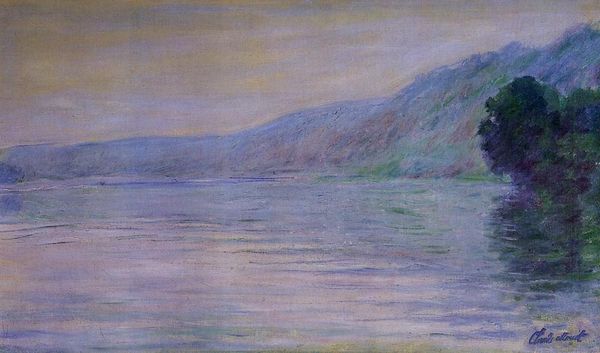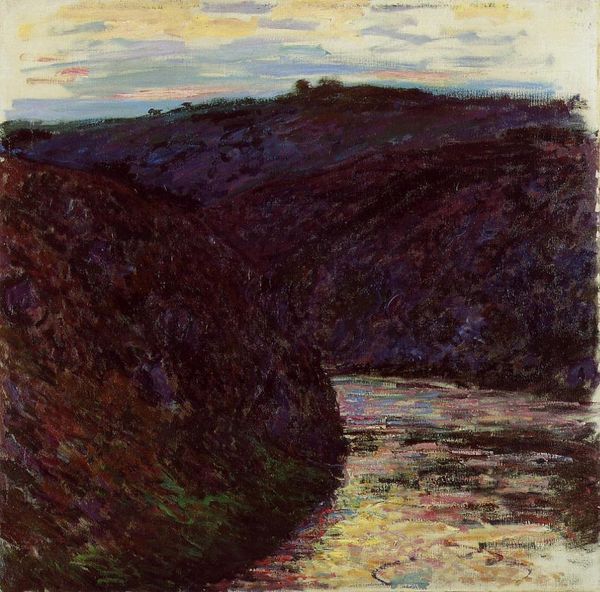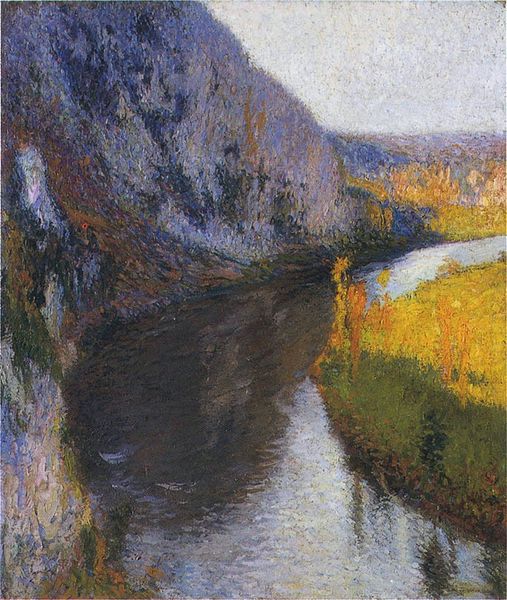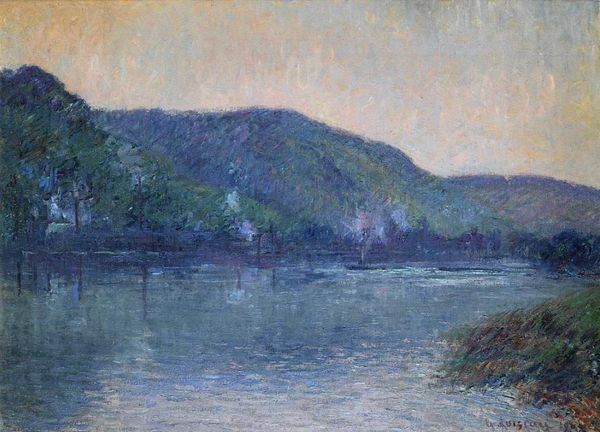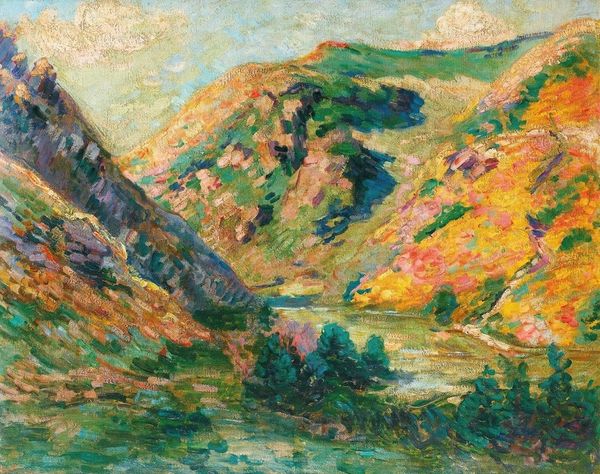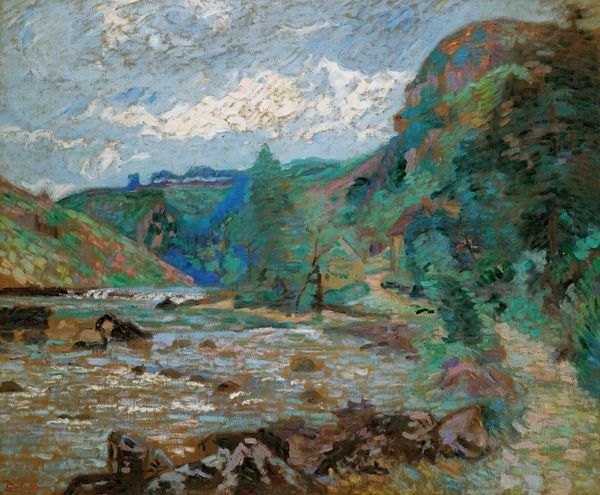
Dimensions: 81 x 65 cm
Copyright: Public domain
Here we see "The Creuse Valley, Evening Effect," an oil on canvas landscape painted by Claude Monet sometime in the late 1880s or early 1890s. Monet, known for his radical exploration of light and color, found himself drawn to the Creuse Valley, a rural area offering a respite from the rapidly industrializing France. Consider how Monet, as a bourgeois Parisian, might have viewed the countryside – perhaps as an escape, or as a site untouched by modernity. Note the almost abstract quality of the brushstrokes, blurring the lines between representation and sensation. What does it mean to capture not just the landscape, but the feeling of being within it? Monet once said "I wish I had been born blind and then one day had my sight restored so that I could see the world for the first time, without any preconceived notions." Monet challenges traditional landscape painting by prioritizing personal experience over accurate depiction. This shift reflects broader cultural changes, including a growing emphasis on individual subjectivity. This painting invites us to contemplate the changing relationship between humanity and the natural world, and the emotional impact of a fleeting moment in time.
Comments
No comments
Be the first to comment and join the conversation on the ultimate creative platform.
